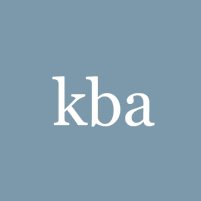Are fears of a recession overdone?
Tuesday 8th of October 2019.
There has been a lot of talk in the media recently about the risk of a recession over the next 12 to 18 months. According to Bloomberg, the number of news items mentioning ‘recession’ has spiked in 2019 to the highest level in five years. One of the main triggers was the inversion of the yield curve which in the past has tended to precede a recession. However, we believe that may not be the case on this occasion.
Typically, investors expect higher compensation for putting their money away over a longer period to make up for the risk of inflation eroding their returns. But when the curve inverts, the yield on short-term bonds rises above the yield on their long-term equivalents, implying investors are concerned about future economic growth prospects.
The QE effect
One reason we think the recent inversion may be a false flag is because quantitative easing (QE)- first employed in response to the 2008 financial crisis- has distorted the yield curve. Since 2008, governments and central banks have bought their own bonds to drive yields lower in an effort to stimulate economic activity. The effect on the bond market has been to increase demand which drives up prices and suppresses yields (due to the inverse relationship between price and yield). Yields have even turned negative in some countries, although a failed bond auction in August by the German government suggests prices have risen too high.
Grounds for optimism
We also believe several catalysts could cause the yield curve to revert to its more conventional upward slope.
One of QE’s aims was to boost inflation. It has remained stubbornly low in many countries since the financial crisis, but we are starting to see prices rising in certain markets. Meanwhile, growing wages are driving inflation too.
Historically, low interest rates present central banks with a problem and governments with an opportunity. Central banks cannot lower rates much further to stimulate activity, but governments can borrow money relatively cheapy. They can direct these funds towards fiscal spending, such as investing in infrastructure, which is another way of boosting the economy.
Finally, the US and China may find a resolution to the trade tensions which have weighed heavily on the global economy over the past eighteen months. A breakthrough seemed unlikely as recently as August after US President Donald Trump threatened new tariffs on Chinese goods and China responded by allowing the yuan to weaken against the US dollar. However, President Trump is seeking re-election next year, and the Chinese economy is slowing, so coming to an agreement is in both parties’ interests.
Eying up equities
Whether or not the yield curve is signalling a recession, the intervening period can be very lucrative for equities. Equities look attractive to investors compared to debt for two reasons- valuations are reasonable (outside of the US), unlike bonds, and dividends are much higher than bond yields. Timing is critical though because if a recession does materialise, the cashflows that underpin current equity valuations could be under threat.
Active fund management proves its worth in these kinds of situations as managers can take advantage of market conditions and adjust their portfolios accordingly.
It is worth noting that investors have traditionally been rewarded for staying invested through short-term market turbulence, as active management is designed to deliver returns over the long term. As the saying goes, successful investing is about time in the market, not timing the market.
Investors should also make sure their holdings match their attitude to risk. Portfolios with a higher proportion of equities are vulnerable to short-term fluctuations but offer potentially better returns in the long run, while defensively positioned portfolios with a higher allocation to fixed income aim to deliver returns which are less sensitive to equity market turbulence.
Furthermore, portfolios should be diversified across different asset classes and regions, so even if a recession does occur in one part of the world, it should not have a disproportionate impact on performance.
The value of your investments can fall as well as rise, and you may get back less than you invest.

Please note: by clicking this link you will be moving to a new website. We give no endorsement and accept no responsibility for the accuracy or content of any sites linked to from this site.